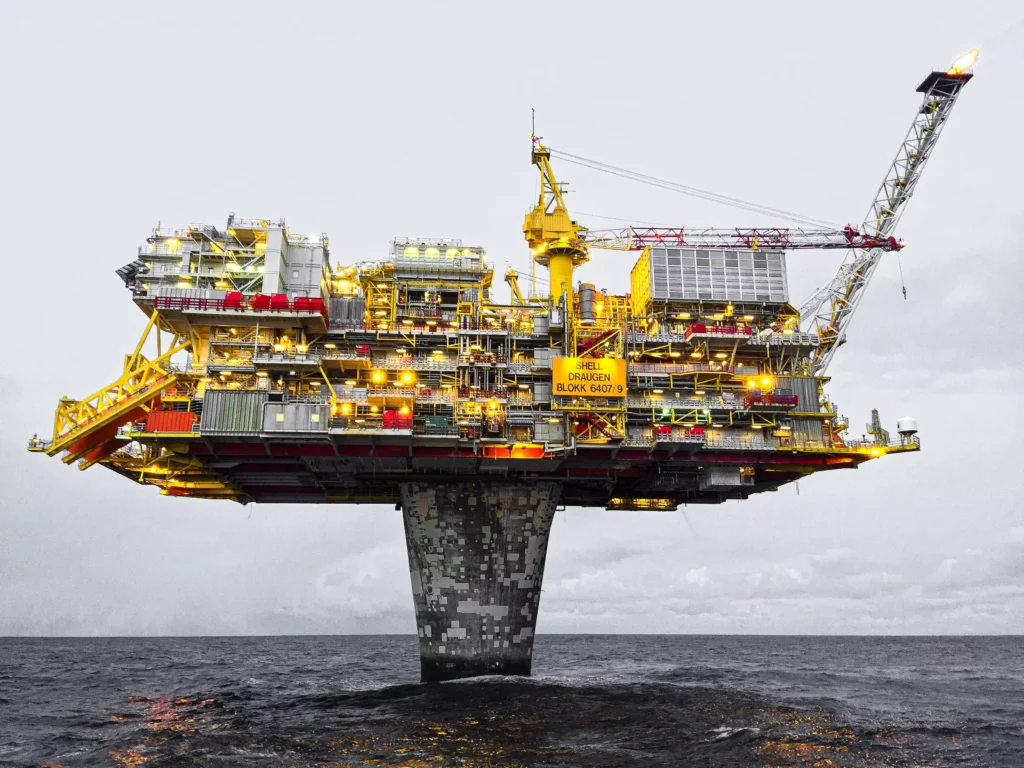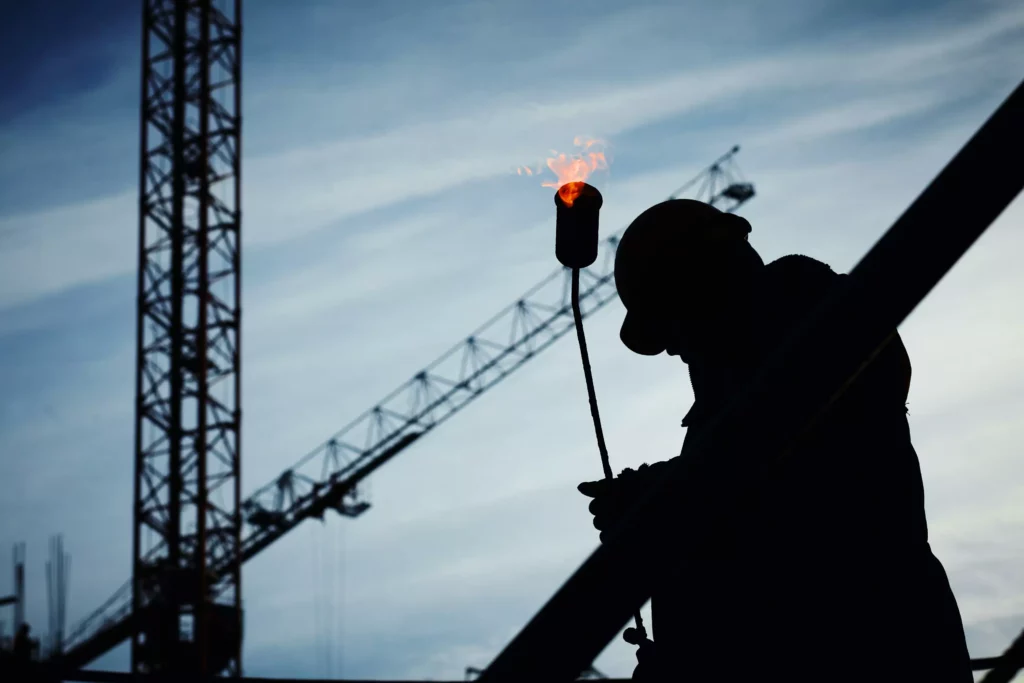Role Of Civil Engineer In Oil And Gas Industry
The oil and gas industry offers a wide range of careers, each with its own set of skills and educational requirements. This industry is also rapidly expanding, which means that employers are frequently in need of qualified personnel to fill open positions. In this article, we discuss the Role Of Civil Engineer In Oil And Gas Industry.
Civil engineers are in high demand in oil and gas companies, as such, they earn very competitive salaries – with an average annual salary of ₦1,285,901. As a Civil Engineer working offshore, you’ll have the opportunity to work with some of the biggest oil companies like Shell, Chevron, Total, Oando, etc.
Who are Civil Engineers, and What Do They Do?
The job of a civil engineer usually starts with the identification of a need. It could be the need to provide clean water to a remote community, relieve a city of growing traffic, or construct a bridge to improve access across urban areas. The civil engineer looks into potential locations, analyzes soil and rock samples, forecasts environmental effects, and consults with locals.
Civil engineers are on-site to create detailed project drawings/maps and supervise the work of other technical workers. They organize and supervise the workforce, plant, and materials, ensuring that the project is completed according to the design, plan, budget, and schedule.
Responsibilities and Roles of a Civil Engineer In Oil And Gas Industry
Civil engineering is one of the oldest professional engineering disciplines, dealing with the planning, designing, supervising, and then maintaining infrastructure facilities that are necessary for modern life. Oil companies require civil engineers because they require infrastructures such as oil fields, pipelines, foundations, and shelters for various equipment, storage facilities, and so on.
There are various subfields in the oil and gas industry that a civil engineer can work in, such as oil fields, gas fields, pipelines, storage facilities, oil refineries, and fuel stations. In each of these fields, civil engineers will play a critical role in the design, construction, and maintenance of specific projects or facilities.
As a result, almost all on-shore and offshore oil companies will require an in-house civil engineer to complete the tasks listed above. The majority of work, such as engineering design and consultancy, construction, and so on, is outsourced to oil marketing companies and the focus is primarily on selling various petroleum products and maximizing profits. The following are some examples of roles:
- Civil engineers are involved in the construction of pumping stations, and hydraulic protection along the pipeline route, such as retaining walls, masonry structures, surveying routes, and levels, as well as engineering change orders.
- Civil engineers are involved in asset management and carry out routine maintenance on the oil plant to ensure optimum efficiency.
- Civil engineers are also responsible for the design and construction of onshore oil facilities such as work sheds, block valve stations, buildings, warehouses, control rooms, submerged pipelines, and tunnels for oil or gas transmission.
- Aside from designing major projects, civil engineers also perform site visits, offer technical support to multiple teams, and supervise contractor delivery.
Career Opportunities For Civil Engineers in Oil & Gas Industry
Civil engineering is a discipline that entails the construction of a wide range of infrastructures, including buildings, bridges, dams, roads, and drainage systems. The following is a list of the various specializations available to civil engineers:
1. Structural Civil Engineers
Structural civil engineers collaborate with architects and builders to ensure that the amount of steel and other materials used in construction projects meets or exceeds the project’s requirements. These civil engineers now work on a wider range of projects than ever before, thanks to advances in technology and an abundance of innovative new building materials.
Structural engineers may work in the oil and gas industry developing and designing new offshore oil rigs in previously unstable locations. Other large construction projects that these professionals work on include inner-city light rail systems and underground supports for new skyscrapers.
2. Geotechnical Civil Engineers
Geotechnical civil engineers work with experts who manage difficult land renewal projects and assist builders in excavating underground projects. Cities hire geotechnical engineers to supervise tunneling when they want to expand their underground mass transit systems. Geotechnical engineers ensure that the bedrock can safely support the pressure of new structures.
In urban cities, geotechnical civil engineers work with emergency management planners to strengthen flood-prone river banks that are close to residential housing developments. They assist in the design of dams and levees to control water flow in the area. They also coordinate the design and location of landfills and quarries to reduce the environmental impact on nearby homes and businesses.
3. Transportation Civil Engineers
Transportation civil engineers assist us in moving around our communities and across the country. They collaborate with local and regional planning boards to identify growth and development opportunities. They also look for ways to reduce traffic congestion. Transportation civil engineers design, plan and develop cost estimates for construction projects after they understand the needs of drivers in a given region.
Transportation engineers supervise a variety of subcontractors who build roads, highways, and bridges after a new project plan has been funded. Following the completion of the structure, transportation engineers ensure that roads are properly maintained and repaired as needed. Transportation engineers must follow a plethora of local and federal policies for safe construction and maintenance while serving the public.
4. Construction Civil Engineers
Construction civil engineers combine their engineering and management skills to ensure that construction projects are completed on time and on budget. To meet tight production schedules, construction managers must coordinate the efforts of teams of engineers and laborers. They are frequently the most visible point of contact for architects, developers, and construction professionals.
Though civil engineering degrees are not required for all construction managers, this field of study can benefit a future construction manager in a variety of ways. Construction managers can build positive working relationships with consultants and team members by communicating on the same level and in the same language as specialist engineers. They can also spot potential mistakes more quickly without having to wait for consultants to arrive at the job site.
5. Environmental Engineers
Environmental engineers are working hard to return us to a time when we could breathe cleaner air and drink cleaner water. They collaborate closely with business leaders and government officials to develop new air pollution standards that reduce harmful emissions from factories while preserving industrial output. They create sophisticated treatment systems to remove pollutants from our air, water, and wastewater.
Environmental engineers also inspect the soil quality, ensuring that harmful toxins do not seep up through the ground or waterways. They collaborate with agricultural companies to ensure that pesticides and soil nutrients have no impact on the quality of the food we eat. They also reassure residents in new developments that their homes were not constructed on contaminated land.
6. Hydraulic/Hydrology/Water Resource Civil Engineers
Hydraulic/Hydrology/Water Resource civil engineers are redirected by civil engineers to benefit residents and businesses in a community. They build canals to speed up shipping while preserving a region’s natural flow of wild fish. These civil engineers also construct dams that generate vital electricity while also allowing for the development of new land parcels.
They create pipelines that safely transport fresh water to far-flung locations, allowing new communities to flourish. Engineers in charge of water resources also oversee environmental projects. They design intricate soil drainage systems to ensure that new development does not have a negative impact on existing communities downstream. They contribute to water conservation by installing advanced rainwater collection systems for irrigation and grounds maintenance.
Conclusion
There are many opportunities that require the role of civil engineer in oil and gas industry. As a civil engineer working offshore, you will be tasked with maintaining the structural integrity of the rig while also providing cost-effective solutions.
You’ll also play a key role in the design of major international projects and collaborate with other structural engineers. Because of increased demand in the field, civil engineers are often involved in the design and construction of new oil facilities, warehouses, workshops, and control rooms.
They’re also in charge of laying out and arranging pipes, tubes, and vents, as well as ensuring that oil plants are properly maintained.



